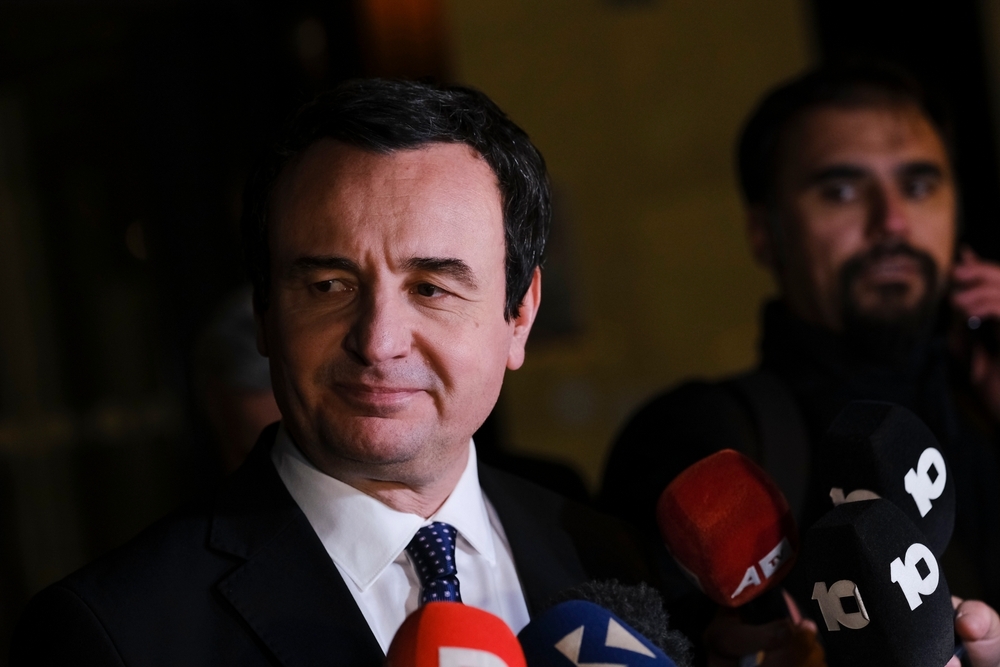Serbia, the fight for the fate of the REM
In Serbia, the Commission for Electronic Media (REM) plays a key role in regulating the sector and freedom of expression, but is tightly controlled by the government. Students are protesting to demand for its members to be super partes and elected transparently

Serbia-the-fight-for-the-fate-of-the-REM
Serbian students block the RTS - © Nikola93/Shutterstock
At the end of April, what seemed like a first important victory for Serbian students who have been protesting against the government in Belgrade for months was recorded. On April 28, the Parliament’s Committee on Culture and Information decided to cancel the ongoing competition for the appointment of the board of the Regulatory Commission for Electronic Media (REM) and to launch a new one.
Soon, however, students and independent media experts realized that – once again – the selection process for the new members of the REM board would not only not lead to the creation of an independent regulatory body, but would most likely subject the body to strict political control again, distorting its functions.
REM’s history in Serbia
The REM plays a fundamental role in regulating electronic media in Serbia since, among other functions, it can grant and revoke licenses, sanction media that violate the law and propose members of the board of directors of the national television of Serbia and that of the autonomous province of Vojvodina.
According to the new law, enacted in 2023, the REM should be composed of impartial experts proposed by independent and competent organizations, such as national human rights authorities, journalists’ unions, representatives of civil society and other organizations in the field.
The proposed candidates cannot include government representatives, owners or shareholders of existing media, party officials or other persons with conflicts of interest. The list of nominees is then approved by the Serbian Parliament.
However, for years the REM has been considered one of the fundamental pillars of the system built by Aleksandar Vučić’s Serbian Progressive Party and the work of the Commission has been subject to much criticism.
One of the main criticisms of the REM is precisely that of having limited media pluralism to the point that, outside Belgrade and the main cities, only the voice of the governing parties can be heard: all four private national frequencies have in fact been assigned only to TV stations close to the governing parties.
Another criticism leveled at the organization was that of tolerating violence in reality and TV shows and therefore indirectly favoring the increase in violence in society that then led to the massacres of 2023.
Finally, the REM has been repeatedly criticized by election observation missions for its passive stance during the elections, when violations of the rules on electoral conduct were reported.
The work of the REM is also a source of “serious concern” for the European Commission, as noted in the 2024 report on Serbia. Following the approval of the new media laws of 2023, the REM was supposed to create a new council by November 2024, but nothing has been done so far: a competition was launched only at the end of November 2024, but it was stalled due to irregularities in January this year, after several candidates withdrew, reporting violations of the law and abuses .
Student protests and the blocking of state television
The state television, RTS, has been criticized by student organizations from the beginning for its silence regarding the student protests. Students realized that, outside of Belgrade, the rest of the country knew little or nothing about the protests.
For this reason, at the end of January, over 50,000 people protested in front of RTS, demanding media attention. The protest had an effect, as RTS from that moment on began covering the student demonstrations and a group of RTS workers were able to express their support for the students.
But all this was not enough and in April the students decided to repeat the occupation, blocking both the studios on Takovska Street and Košutnjak. The television station was paralyzed and had to adopt an emergency schedule or even read the news on the RTS terrace while the students protested.
The students’ request was very explicit: the competition for the selection of the REM board members had to be canceled and redone from scratch. REM has the power to appoint the RTS board of directors, which decides the editorial line of the television.
The blockade lasted from April 14 to 28: access to the studios was blocked, the students occupied the buildings for two weeks, in a peaceful and festive atmosphere, with music and films. During the Easter holidays, students of the University of Novi Pazar supported the students of Belgrade. All under the watchful eye of the army veterans who acted as security.
On April 28, the stalemate ended and, in a rare bipartisan moment within the Culture Commission, both the representatives of the opposition and those of the governing parties voted to cancel the previous competition and to announce a new one . On the same day, the students lifted the blockade on the RTS studios, which immediately resumed broadcasting.
The end of a brief illusion
The new competition was announced a few days later and at the end of May, nominations for 46 candidates were submitted. During the procedure, however, as noted by the organization Gradjanske Inicijative , which follows the nomination procedure , there were several irregularities, including undue pressure from the ministries on some civil society organizations to participate in the process, even without qualifications, and to vote for the candidates suggested by the ministries.
To these and other objections, the Culture Committee – which manages the procedure – did not respond adequately, rejecting all the objections that had been raised about the regularity of the procedure . For this reason, on 13 June, in a letter to the Culture Committee, 78 proposing organisations decided to withdraw from the process and to withdraw their 18 candidates in protest at the clear violations of the law.
Following these violations, as reported in the letter, even organisations and candidates who clearly did not have the qualifications to participate in the competition were nevertheless accepted by the Culture Committee, which in fact also recognised that the selection procedure was not being carried out in accordance with the law.
It is not clear what will happen now. Ana Brnabić, the Speaker of the Parliament, said that a solution will be found . It is not clear what that solution is: the fear is that they want to complete the selection of the REM board despite the reported irregularities and that they may thus create a body that lacks the necessary independence and competence.
In the meantime, students have announced another massive protest in Belgrade on June 28 , the fateful day of St. Vitus. As for the REM, students have already made plans to ensure the regularity of the process and at the moment they do not rule out larger actions.
With all certainty, the issue of the REM, and of free information in Serbia, will return from the halls of Parliament to the streets of protest.









